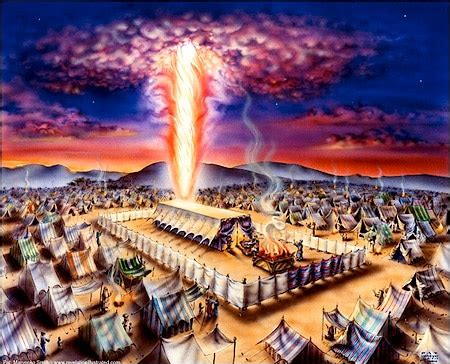Exodus 25:1 And יהוה spoke to Moses saying, 2 Speak to the Children of Israel so that they will bring Me an offering: you will take אֶת־ My offering מֵאֵת from every man who gives it willingly from his heart. C-MATS
Question: God instructs Moses to collect gifts from the Israelites in order to build a Tabernacle so that God can dwell among the people. There are four basic personality types in relation to their possessions and giving. What is your opinion of each of these attitudes?
- A person whose attitude is “What’s mine is mine and what’s yours is yours.” While this attitude may seem fair, it is not particularly growth oriented since it closes a person off from giving to others, which is a source of great spiritual pleasure and growth.
- One whose attitude is “What’s mine is yours and what’s yours is mine.” On the surface this also sounds fair. But in fact it is impractical since people often need their boundaries respected, which this doesn’t allow for. Besides this it still involves a lot of taking (i.e. “what is yours is mine”).
- A person whose attitude is “What’s mine is yours and what’s yours is yours.” This is an ideal level which combines a great respect for other’s boundaries with a willingness to stretch our own in order to help others. A person who lives this way has truly discovered how much more satisfying it is to give than to take.
- One who says “What’s yours is mine and what’s mine is mine.” This is a self-centered attitude which will likely leave a person both unsatisfied and at odds with the people around him. Chumash
Exodus 25:3 וְזֹאת and this is the offering which you will take from them; gold, silver and brass, 4 And blue, purple and scarlet fine linen and goats hair, 5 And rams skins dyed red and badgers skins and acacia wood. C-MATS
Question: What does “badgers” mean in this verse? This word is also found in Exodus 26:14.; 35:7, 23; 36:19; 39:34; Numbers 4:6, etc. as a “covering for the tent (Tabernacle) an outer covering of badger’s skins (fine leather).” The shoes of women were also made of them (Ezekiel 16:10 I clothed you also with broidered work and shod you with sealskin.) Our translators seem to have been misled by the similarity in sound of the Hebrew tachash_ and the Latin _taxus, “a badger.” The revisers have correctly substituted “seal skins.” The Arabs of the Sinaitic peninsula apply the name tucash to the seals and dugongs which are common in the Red Sea, and the skins of which are largely used as leather and for sandals. Though the badger is common in Palestine, and might occur in the wilderness, its small hide would have been useless as a tent covering. The dugong, very plentiful in the shallow waters on the shores of the Red Sea, is a marine animal from 12 to 30 feet long, something between a whale and a seal, never leaving the water, but very easily caught. It grazes on seaweed, and is known by naturalists as Halicore tabernaculi. Easton’s Bible Dictionary

